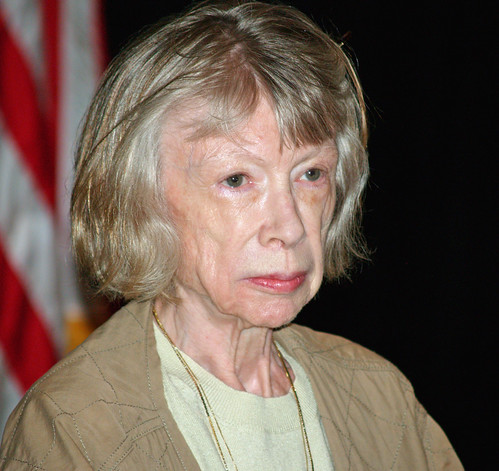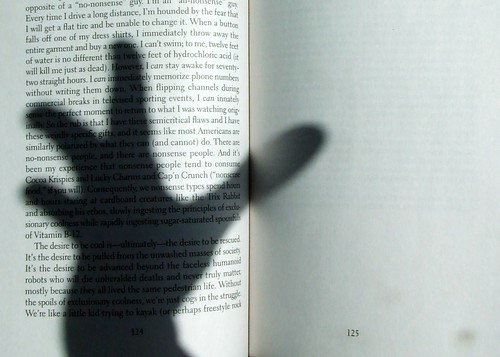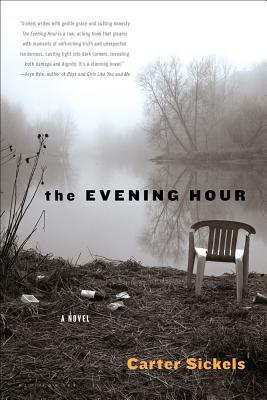Recently, the New York Times tackled the burning question of why authors tweet. One main reason? To connect with the reader, of course:
For one thing, publishers are pushing authors to hobnob with readers on Twitter and Facebook in the hope they will sell more copies. But there’s another reason: Many authors have little use for the pretension of hermetic distance and never accepted a historically specific idea of what it means to be a writer. […]
Jennifer Gilmore (3,463 followers) finds hearing from readers helps her understand the influence her novels have on them: “On Twitter, I have a sense that people — those you know and those you don’t — read your work in a way I have not always felt in the world.”
Not all authors feel this way; as the Times article notes, Gary Shteyngart often writes in persona (including that of his dog), while Jeffrey Eugenides argues, “It’s better, I think, for readers not to communicate too directly with an author because the author is, strangely enough, beside the point.” But by and large, it seems that readers want to feel connected to their favorite authors—not just to their works, but to the authors as actual people. Love a book, the logic goes, and you’ll likely love the author, too.
But does that logic hold? What if you don’t love the author?
 Writing in The Faster Times, Abigail Rasminsky describes a stilted book-signing encounter with Joan Didion that left her feeling “dirty, like I had turned into a predator, sucking her for something she wasn’t equipped to give”:
Writing in The Faster Times, Abigail Rasminsky describes a stilted book-signing encounter with Joan Didion that left her feeling “dirty, like I had turned into a predator, sucking her for something she wasn’t equipped to give”:
The relationship, I saw with renewed clarity, is always to the writing—not to the writer. That fleeting moment Phillip Lopate calls a “shiver of self-recognition” comes from the ideas, the words themselves, meticulously lined up again and again, not from the person standing before a crowd, rereading them after the long struggle.
This kind of personal disappointment in a writer you adore is one thing; at home, as Rasminsky does, you can ignore the physical existence of the author and renew your relationship with that author’s words. But what if the author ruins your relationship with the writing? What if you actively despise the views of an author you love? In the Huffington Post, Dave Astor writes about his conflicted emotions on learning that Orson Scott Card is anti-gay:
It was on the Web that I discovered Card has actively and publicly opposed same-sex marriage, which greatly upset me because I’m a strong believer in gays and lesbians having the right to wed. So I asked myself: Do I ever want to read this guy again? […]
Ultimately, I decided I would not open a Card book again. This is similar to a decision I made years ago not to read much of Ernest Hemingway and Norman Mailer because of the macho nonsense they were guilty of in their personal lives. (And I didn’t see a Woody Allen movie for a long time after his shenanigans that might have almost bordered on incest.)
Astor’s decision reads almost like a business boycott: he vows not to “devote any more eyeball time to a guy who fights against an important civil and human right for millions of Americans.” Will Orson Scott Card notice, or care? Probably not. But that’s not the point. If you, as a reader, know an author fervently supports a cause you hate, every word that author writes might seem tinged. In that case, the distinction between the writer and the writing may be academic.
 When I was a moody teenager, I developed crushes on movie stars based on the roles they played. Chief among them: Tom Cruise, because of Top Gun and—I blush to admit it—Far and Away. Fast-forward twenty years. Tom Cruise impregnates the virginal Katie Holmes and startles the nation with a lunatic jump on Oprah’s couch. This is in no way the same as, say, opposing same-sex marriage (a cause I, like Astor, strongly support). But I haven’t been able to watch a Tom Cruise movie, new or old, since.
When I was a moody teenager, I developed crushes on movie stars based on the roles they played. Chief among them: Tom Cruise, because of Top Gun and—I blush to admit it—Far and Away. Fast-forward twenty years. Tom Cruise impregnates the virginal Katie Holmes and startles the nation with a lunatic jump on Oprah’s couch. This is in no way the same as, say, opposing same-sex marriage (a cause I, like Astor, strongly support). But I haven’t been able to watch a Tom Cruise movie, new or old, since.
The actor is not the acting. The writing is not the writer. But sometimes, the two overlap.
Further Reading:
- Critics of Rick Moody’s work often seem more like critics of Rick Moody himself. What’s the deal with that? Jonathan Callahan investigates.
- Further blurring the line between writer and writing: David Foster Wallace writes a story in which David Wallace imagines the thoughts of a friend who takes his own life. Scott F. Parker’s thought-provoking essay, “The Real Question,” attempts to unravel this.
- Would you trust Hemingway’s Yelp reviews?
- Forget tweeting with the author. Maybe you’d rather just tweet with the characters.






